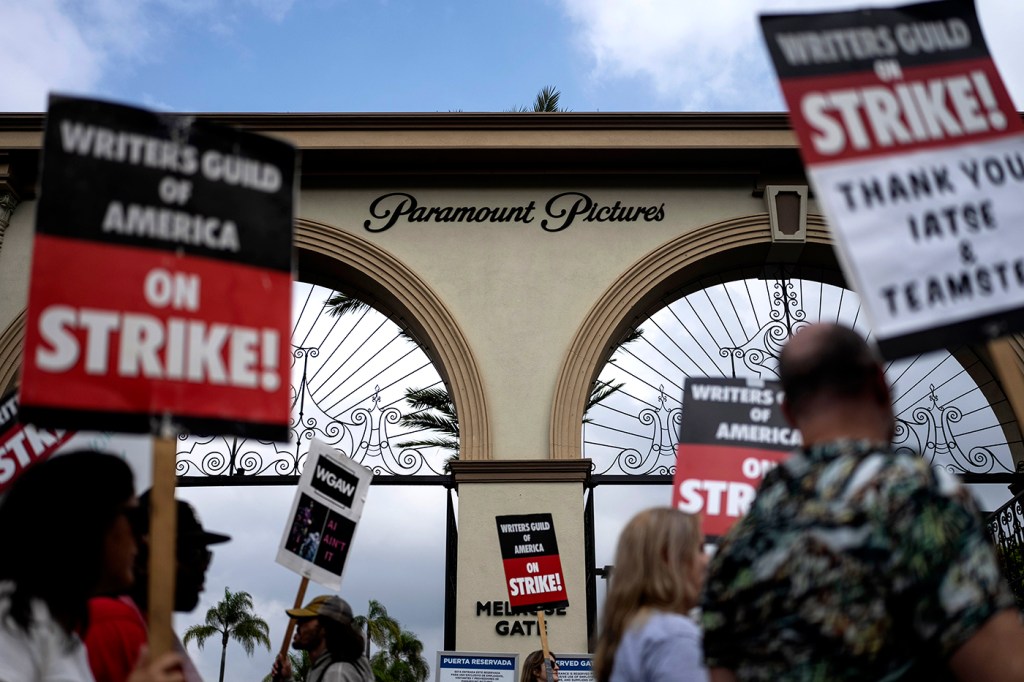Hollywood screenwriters reached a tentative deal. Does this mean scripted TV is coming back?

After over four months of striking, the Writers Guild of America announced on Sunday night that it reached a tentative contract with studio executives. While this may signal the potential end of the strike, it doesn’t mean the holdup on filming TV and movies is over.
For starters, the agreement is tentative, meaning it still needs to be voted on and approved by the Guild’s 11,000-plus members, according to Ryan Quinn, a labor lawyer and adjunct professor teaching labor and employment law at Northeastern University’s School of Law.
The agreement will be sent to the WGA, as well as the WGA East and WGA West boards, which will then decide whether to bring it to a ratification vote with its members.
“What it means is the negotiating teams for each side have agreed on language,” he said. “It’s an initial step. … It doesn’t necessarily indicate anything about whether the parties are happy with the deal or feel like there might have been more to gain.”
According to the New York Times, this particular agreement includes language on increasing the revenue writers receive from streaming content, concessions on minimum staffing, and protects against artificial intelligence encroaching on the writers’ room.
While it’s possible the deal still may be rejected, Quinn predicts that, given the length of the strike, it’s likely the negotiating team struck a bargain that’ll work for union members.
“It seems unlikely that the negotiating committee for the union at the end of a 146-day strike would put something up that it doesn’t expect the members to ratify by a pretty substantial margin,” Quinn said. “From the reaction of writers online just in the last 12 hours or so, it seems like most people have an expectation that this will be ratified and it includes a lot of the language that was important to the union all along.”
Quinn added that many unions typically give members the language of the agreement and meet to discuss what it means. There’s usually a “yes” or “no” vote from there. This means it could be anywhere from several days to several weeks before the strike is actually over — though picketing is paused for now.
But this doesn’t mean your favorite shows will resume in a few weeks. For one thing, a lot of writing in the industry is done well in advance of filming, which means there will likely still be delays before TV shows and movies held up by the strike are released.
Even more pressing, though, is the SAG-AFTRA strike. While writers may be free to return to their craft, only some shows, like talk shows, can resume without actors.
The SAG-AFTRA strike is likely to continue, Quinn said, affecting the entertainment industry. He noted that in the past, there’s been a history in Hollywood of unions following each other in bargaining and agreement on their terms. But that hasn’t been the case over the last few months. The Directors’ Guild reached an agreement this summer and did not go on strike.
“That is already a break from that type of pattern of negotiation that the Hollywood unions would engage in,” Quinn said. “It has been typical in past years that percentage increases and so forth, the other unions would accept something similar, but they’ve broken from the mold in this cycle.”
It’s also unclear whether writers would cross the SAG-AFTRA picket line, Quinn said, meaning your favorite show might not be back up and running any time soon.
Erin Kayata is a Northeastern Global News reporter. Email her at e.kayata@northeastern.edu. Follow her on Twitter @erin_kayata.






